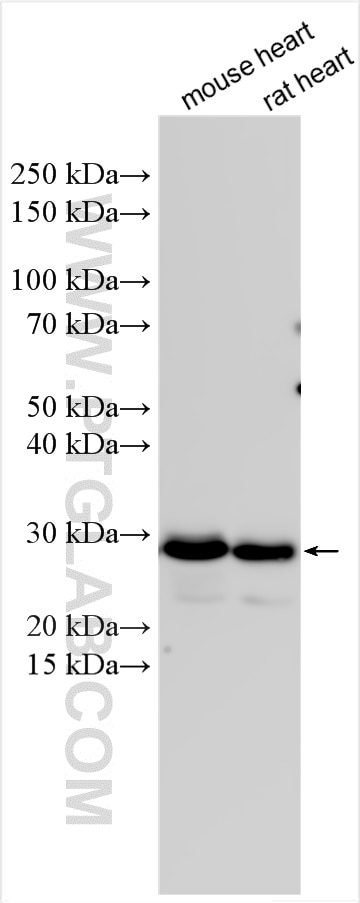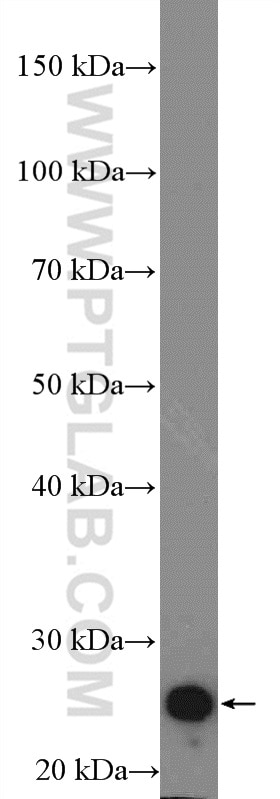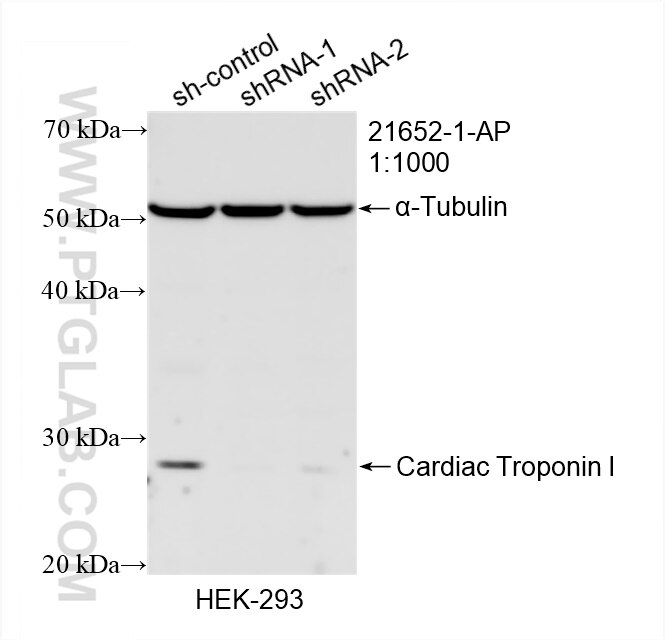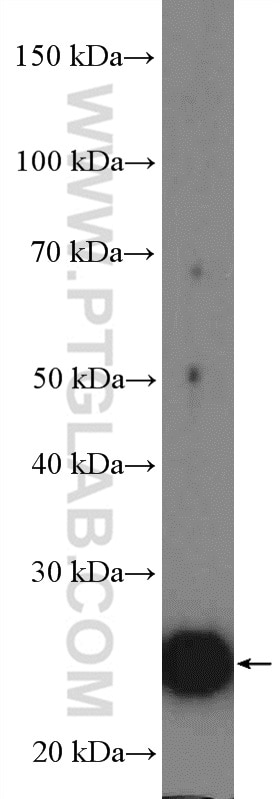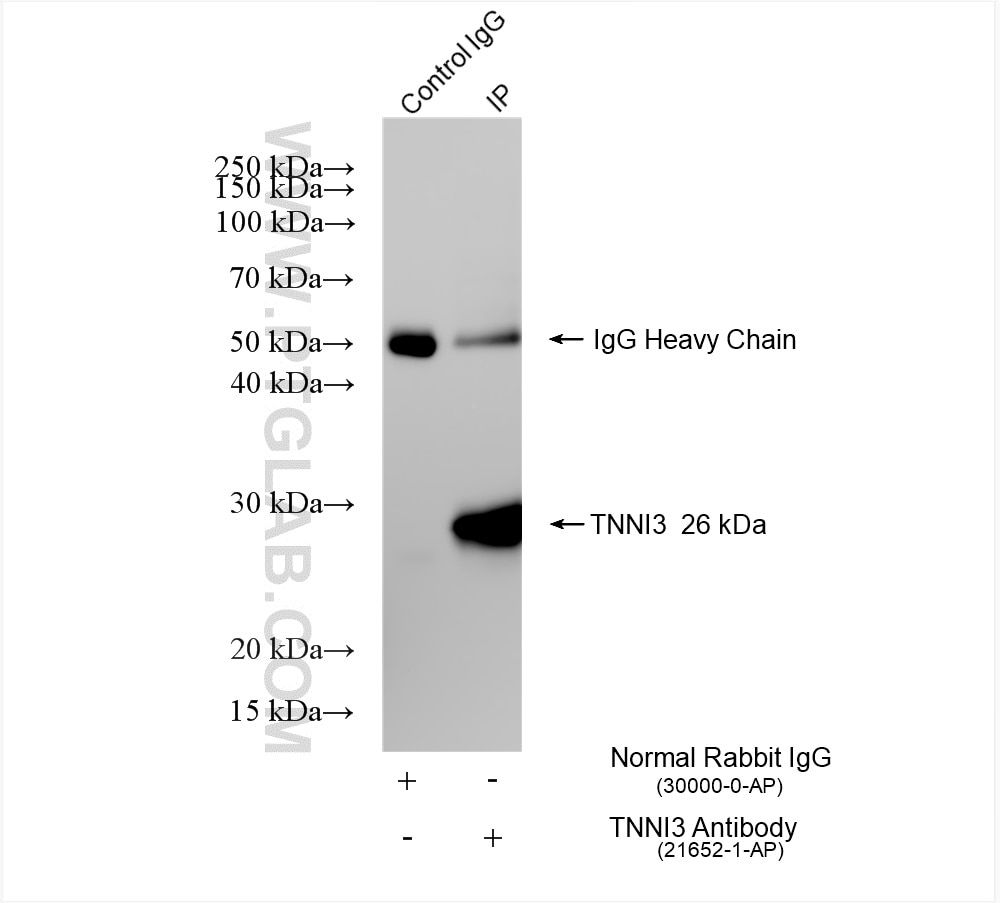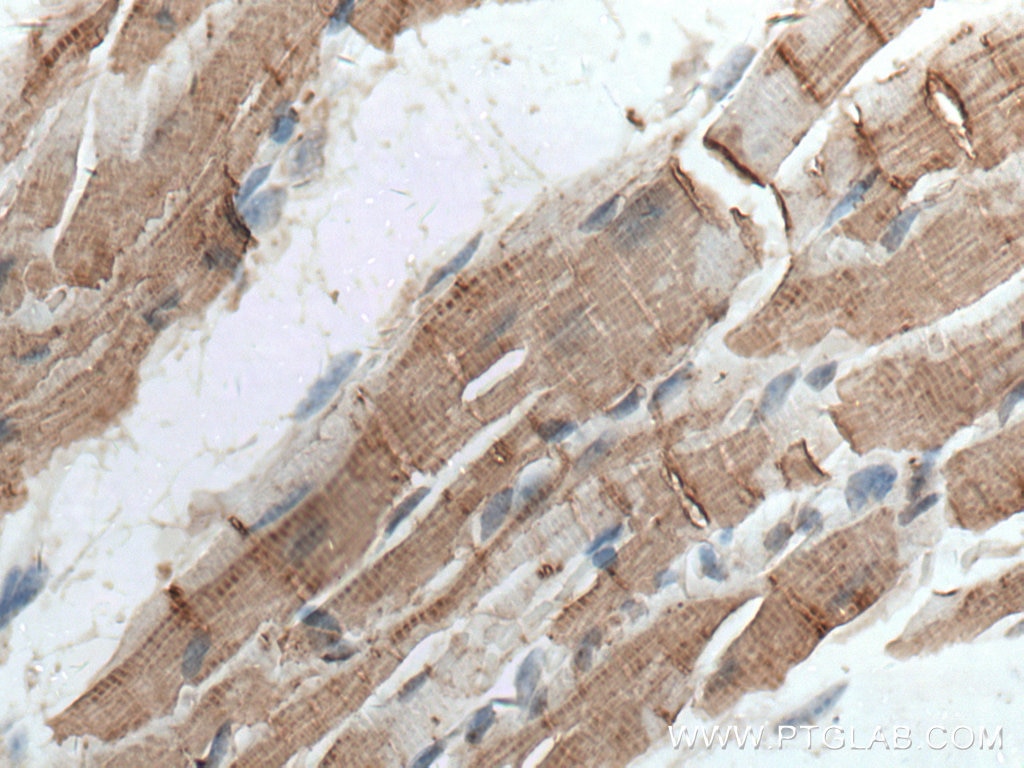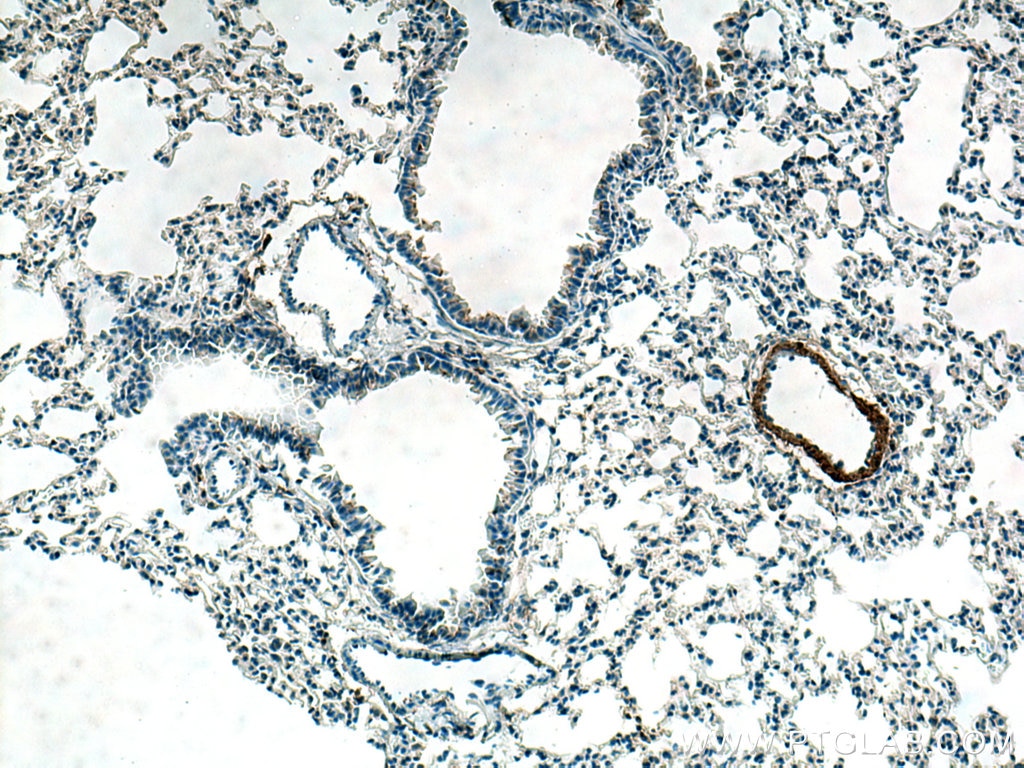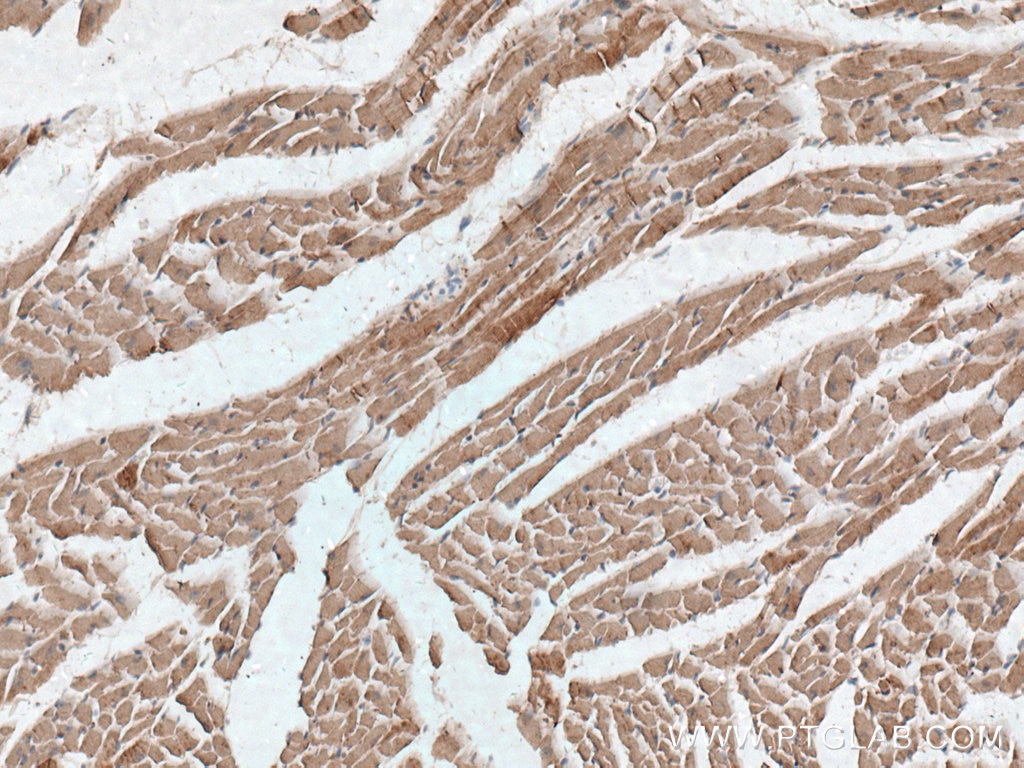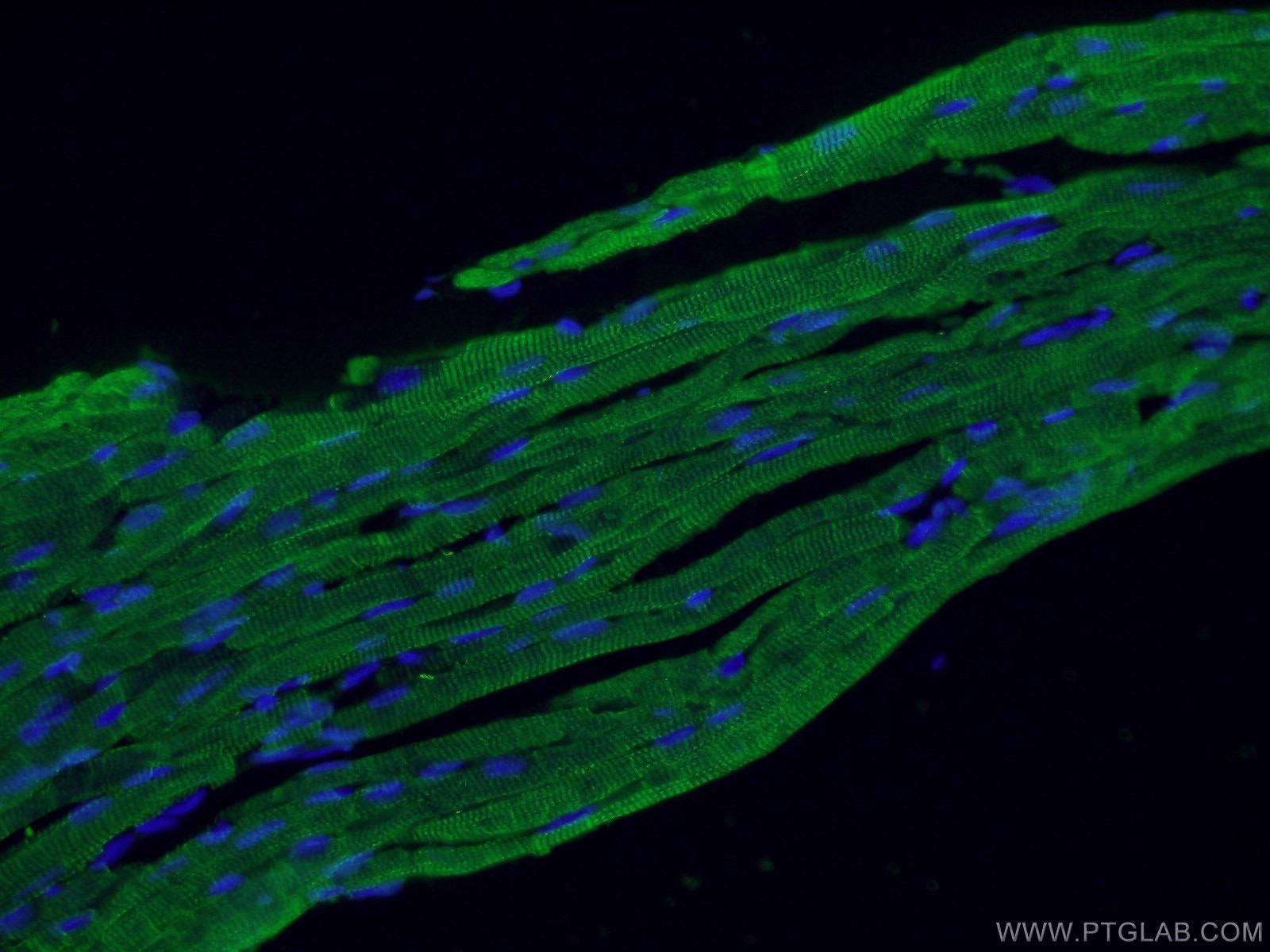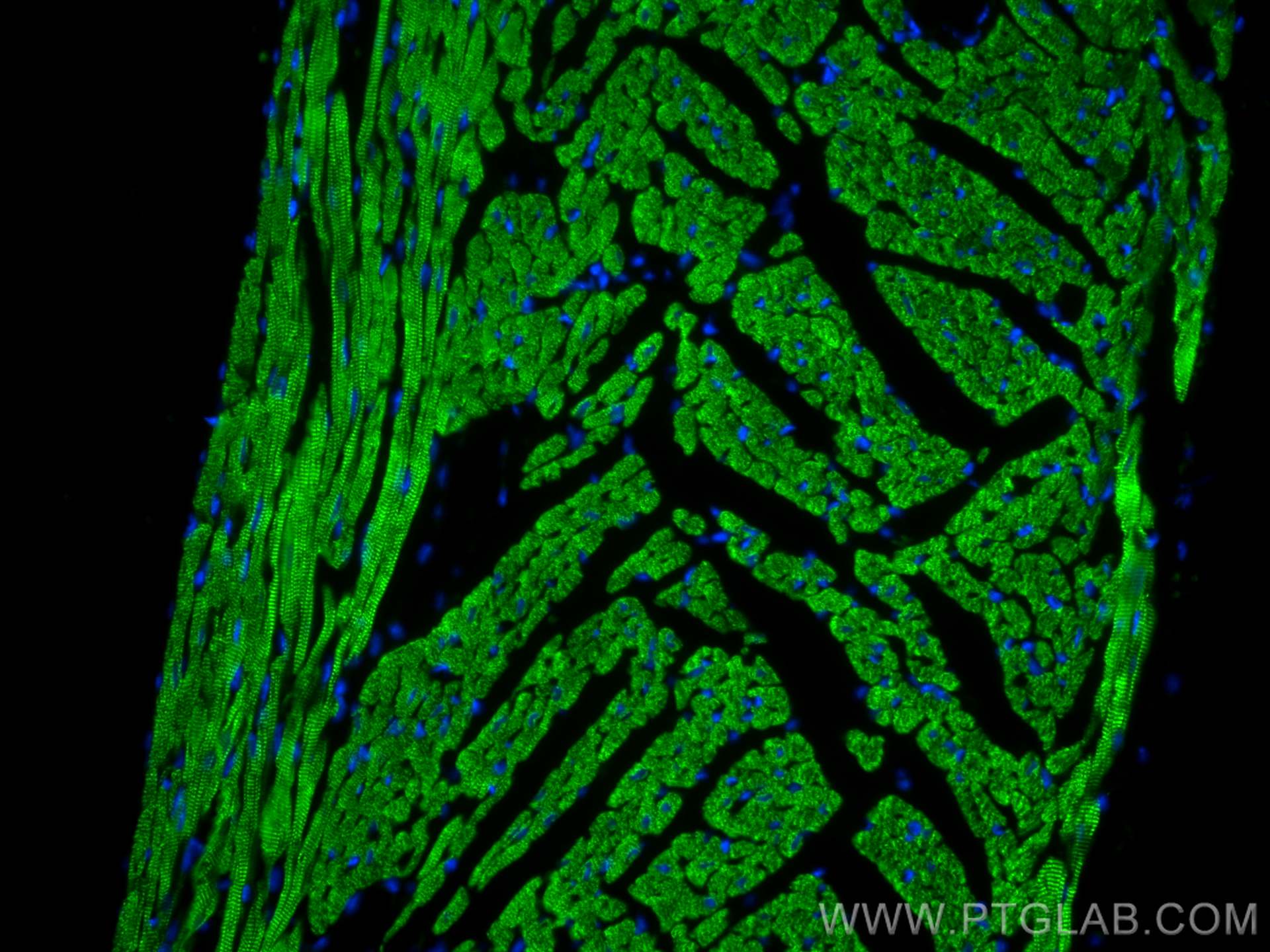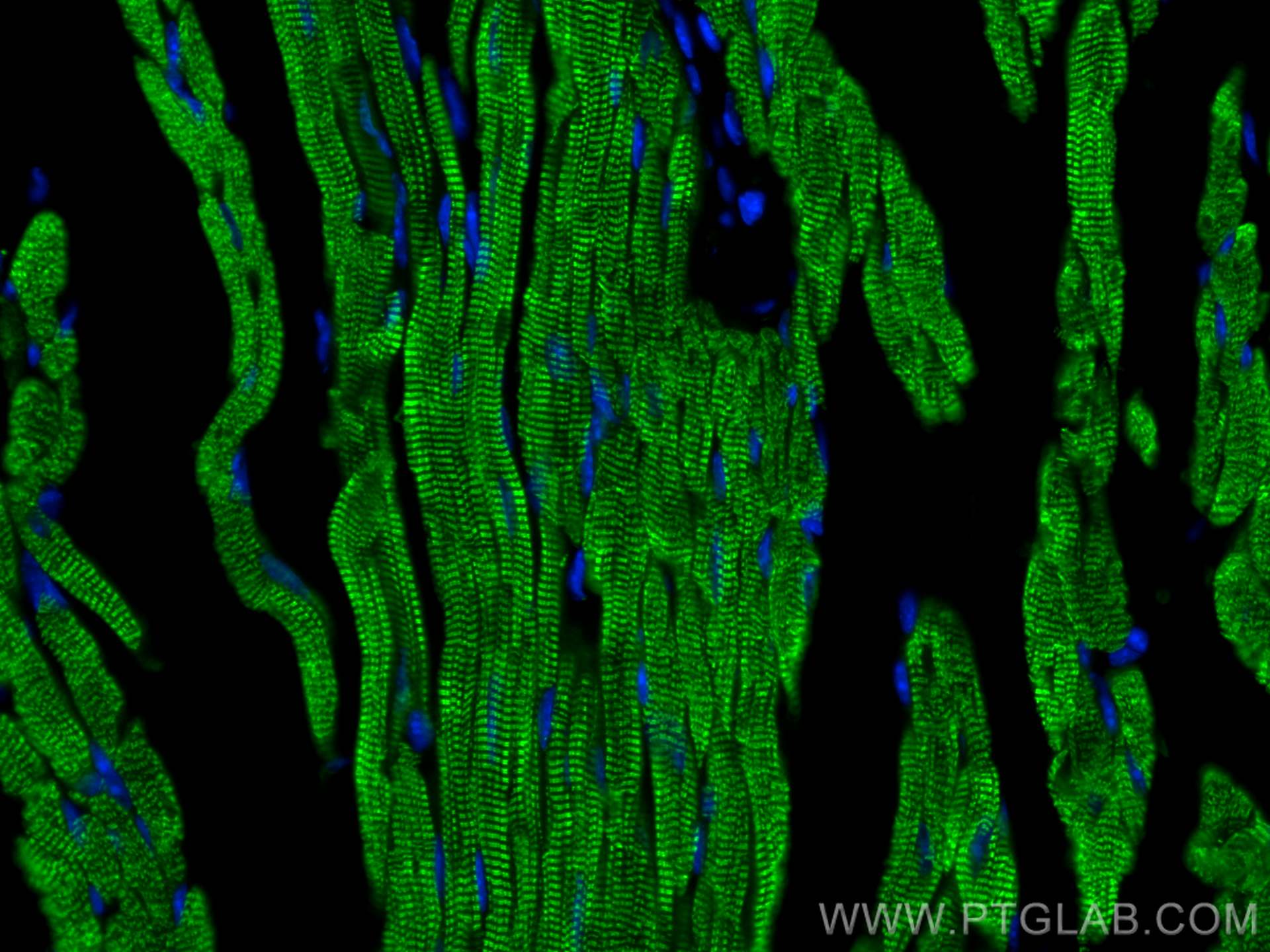Validation Data Gallery
Tested Applications
| Positive WB detected in | mouse heart tissue, rat heart tissue, HEK-293 cells |
| Positive IP detected in | mouse heart tissue |
| Positive IHC detected in | mouse heart tissue, human heart tissue, mouse lung tissue Note: suggested antigen retrieval with TE buffer pH 9.0; (*) Alternatively, antigen retrieval may be performed with citrate buffer pH 6.0 |
| Positive IF-P detected in | mouse heart tissue |
Recommended dilution
| Application | Dilution |
|---|---|
| Western Blot (WB) | WB : 1:20000-1:100000 |
| Immunoprecipitation (IP) | IP : 0.5-4.0 ug for 1.0-3.0 mg of total protein lysate |
| Immunohistochemistry (IHC) | IHC : 1:500-1:2000 |
| Immunofluorescence (IF)-P | IF-P : 1:300-1:1200 |
| It is recommended that this reagent should be titrated in each testing system to obtain optimal results. | |
| Sample-dependent, Check data in validation data gallery. | |
Published Applications
| WB | See 17 publications below |
| IHC | See 3 publications below |
| IF | See 17 publications below |
| ELISA | See 1 publications below |
Product Information
21652-1-AP targets Cardiac Troponin I in WB, IHC, IF-P, IP, ELISA applications and shows reactivity with human, mouse, rat samples.
| Tested Reactivity | human, mouse, rat |
| Cited Reactivity | human, mouse, rat |
| Host / Isotype | Rabbit / IgG |
| Class | Polyclonal |
| Type | Antibody |
| Immunogen | Cardiac Troponin I fusion protein Ag16365 相同性解析による交差性が予測される生物種 |
| Full Name | troponin I type 3 (cardiac) |
| Calculated molecular weight | 210 aa, 24 kDa |
| Observed molecular weight | 24-26 kDa |
| GenBank accession number | BC096165 |
| Gene Symbol | Cardiac Troponin I |
| Gene ID (NCBI) | 7137 |
| RRID | AB_2878898 |
| Conjugate | Unconjugated |
| Form | Liquid |
| Purification Method | Antigen affinity purification |
| UNIPROT ID | P19429 |
| Storage Buffer | PBS with 0.02% sodium azide and 50% glycerol , pH 7.3 |
| Storage Conditions | Store at -20°C. Stable for one year after shipment. Aliquoting is unnecessary for -20oC storage. |
Background Information
Troponin I (TnI) is the inhibitory subunit of troponin; the thin filament regulatory complex that confers calcium sensitivity to striated muscle actomyosin ATPase activity. Cardiac Troponin I (cTnI) is encoded by the TNNI3 gene located on chromosome 19 in humans.
What is the molecular weight of cTnI?
The molecular weight of cTnI is 24 kDa.
What is the tissue specificity of cTnI?
cTnI is produced exclusively by cardiac muscle.
What are the post-translational modifications of cTnI?
cTnI at Ser-23 and Ser-24 under adrenergic stimulation enhances the relaxation of cardiac muscle.
What is the role of cTnI in disease?
cTnI is considered to be one of the most specific and sensitive markers of myocardial damage such as acute myocardial infarction (AMI), as detection of cTnI in serum is widely accepted as a diagnostic tool (PMID: 15452154). Defects in TNNI3 lead to cardiomyopathy familial hypertrophic type 7 (CMH7); an inherited heart disorder characterized by ventricular hypertrophy (PMID: 8205619). Defects in TNNI3 can also cause cardiomyopathy familial restrictive type I (RCM1) (PMID: 20617149) and cardiomyopathy dilated type 2A (CMD2A) (PMID: 12531876). These disorders are characterized by the impaired filling of ventricles or ventricular dilation respectively.
Protocols
| Product Specific Protocols | |
|---|---|
| WB protocol for Cardiac Troponin I antibody 21652-1-AP | Download protocol |
| IHC protocol for Cardiac Troponin I antibody 21652-1-AP | Download protocol |
| IF protocol for Cardiac Troponin I antibody 21652-1-AP | Download protocol |
| IP protocol for Cardiac Troponin I antibody 21652-1-AP | Download protocol |
| Standard Protocols | |
|---|---|
| Click here to view our Standard Protocols |
Publications
| Species | Application | Title |
|---|---|---|
EBioMedicine Elevated myocardial SORBS2 and the underlying implications in left ventricular noncompaction cardiomyopathy. | ||
Transl Res Epididymal white adipose tissue promotes angiotensin II-induced cardiac fibrosis in an exosome-dependent manner. | ||
Biosens Bioelectron Improving the reproducibility, accuracy, and stability of an electrochemical biosensor platform for point-of-care use. | ||
Theranostics miR-17-3p Contributes to Exercise-Induced Cardiac Growth and Protects against Myocardial Ischemia-Reperfusion Injury. | ||
Arterioscler Thromb Vasc Biol Platelet Internalization Mediates Ferroptosis in Myocardial Infarction | ||
EBioMedicine Microtubule associated protein 4 phosphorylation leads to pathological cardiac remodeling in mice. |
